
Climate Actions
There are so many ways to take Climate Action. Read some of our suggestions and see what inspires you.
Reduce Food Waste
Think Global, Act Local
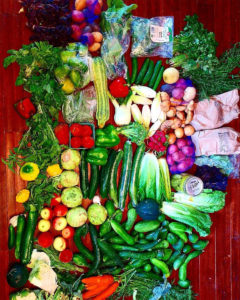
Photo Credit: Backyard.Backcountry
Food waste is linked to climate change in many ways, for example a study has shown that by better management and distribution of food 14% of emissions could be avoided. In Ireland the figure could be higher as agriculture accounts for 29% of Irish emissions. If food loss and waste were a country, it would be the third largest greenhouse gas emitter in the world, so very good reasons to reduce food waste. Maybe you could set up a community fridge, were unwanted food is left for others to take and consume.
Check out these links for more info & ideas;
Food Rescue
Host a Food Rescue party. Organise a food delivery
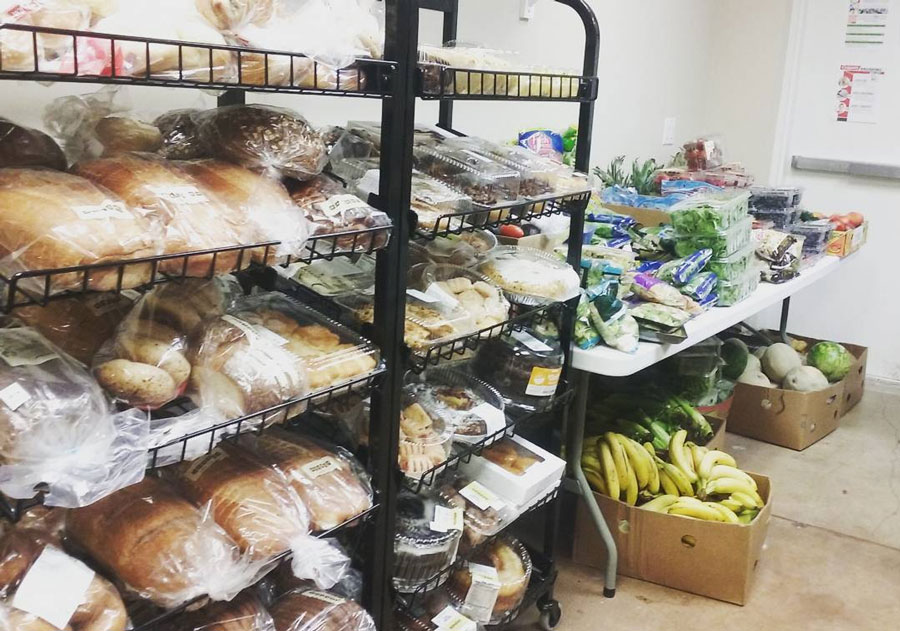
Photo Credit: FoodAngelsFoodPantry
Between 30 and 40% of food produced around the world is never eaten, because it is spoiled after harvest, during transportation or thrown away by shops and consumers. Considering Irish households throw out on average €700 worth of food annually and 1 in 8 people in Ireland experience food poverty, there are very good reasons to address this issue other than the climate related effects. Think about the wasted water and energy used to grow, produce, transport and store the food. When food goes to landfill instead of being composted properly, increased GHG emissions are also another negative by-product. The community group “Food rescue champions” organise the collection of short-dated food from local shops, farms or other food businesses which is then prepared to make a delicious meal to share with their neighbours. The charity “Food Cloud” brings volunteers, food businesses and charities together to rescue surplus food in Dublin & Cork delivering it to those who need it most.
Check out these links for more info & ideas;
Eat a more plant-based diet
Small shifts in diet choices can make a huge impact environmentally

Photo Credit: Plant.Based.Jane
Other food related approaches could include reducing the amount of meat intake, especially beef, as this uses much higher amounts of resources and emits higher amounts of GHG’s. Organising “Meat Free Mondays” for example is a good way to approach this within your community and can help change people’s attitudes towards the food that they eat. By encouraging a plant-based diet, or less meat and dairy diet, people can realise small shifts in their diet choices can make a huge impact for their health as well as our planet. Maybe you could host a meat-free food gathering in your community, asking locals to join a “pot luck” event, where everyone brings a vegetarian or vegan dish to share. You could incorporate other activities such as a walk, cycle or yoga beforehand. This could become a recurring event, for example every first Saturday morning of the month.
Check out these links for more info & ideas;
Work with existing groups in your community
Cooperate, network & share with like minded groups
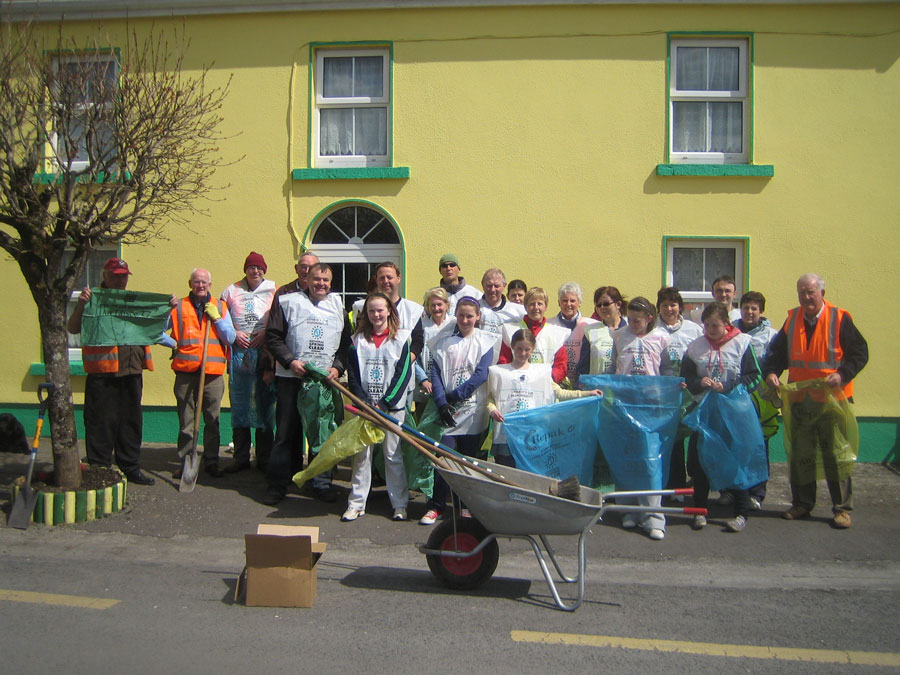
Photo Credit: An Taisce Environmental Education Unit
There are many fantastic voluntary groups throughout Ireland that are just waiting to work on environmental projects. Some groups already are, while others are in need of someone like you to help them move to a more sustainable approach. Either way, by tapping into these existing groups in your community you are working with people that have a ‘can do’ attitude, as well as strength in numbers. The scope for this approach is huge and there are awards, such as the “Tidy Towns Community Climate Action Award” that could be won to recognise your local club’s efforts. Take the village of Glaslough, in Co Monaghan. In recent years its Tidy Towns committee has built a windmill from discarded aluminium cans! This powers the electricity in a greenhouse made from plastic bottles.
Check out these links for more info & ideas;
Make your club more sustainable
Transform your club & save money while you save the earth
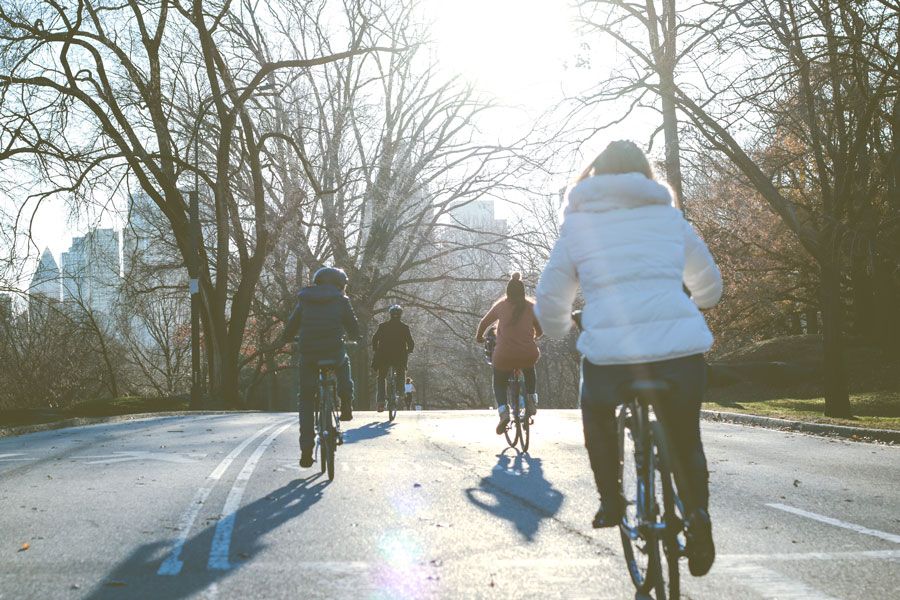
Photo Credit: David
Many clubs throughout the country are probably unaware of the savings they could make while becoming more sustainable through reducing their carbon footprint. By engaging with local clubs, a whole host of ways can be introduced to reduce the amount of emissions the club is collectively emitting, thereby having positive benefits locally, by reducing pollution levels and increasing health and well-being, while also becoming more globally conscious citizens and reducing their carbon emissions. This can range from encouraging walking/cycling to the grounds to applying for energy upgrade funds through SEAI.
Check out this link for more information:
Calculate Your Communities Carbon Footprint
Fund-raise to offset the emissions you cannot eliminate

Photo Credit: Michael John O’Mahony
Offsetting your communities carbon emissions is a last resort option that can help to lower the impact of your communities emissions, by buying ‘carbon credits’. For every ton of carbon equivalent emissions, it is possible to buy ‘carbon credits’ to offset those emissions. The funds from the credits go towards projects in parts of the world that most need assistance in climate adaptation and mitigation projects. In 2011 the average Irish person had a carbon footprint equivalent of 8 tonnes. The process of offsetting is to reduce your carbon emissions as much as possible, then measure your carbon footprint, then offset what you cannot reduce with UN certified emission reductions. You can choose what type of project and in what part of the developing world you would like the credits to go to. Perhaps you could link your community to the community where the offsets are going and create a connection throughout both communities climate action journey. You could start by calculating each individuals carbon footprint, then adding the total emissions from your community together.
Check out these links for more info & ideas;
Work with Local Authorities in your area
They will help facilitate climate adaptation workshops
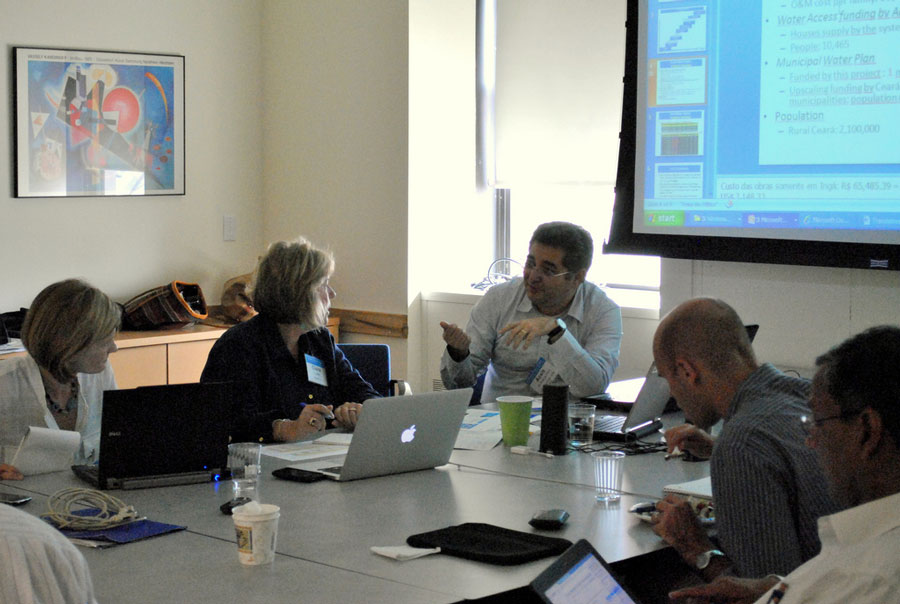
Photo Credit: Columbia Water Center
Our Local Authorities (city & county councils) have identified impacts of climate change and have begun working on ways to adapt to these changes such as increased flooding, storms, sea-level rise and increasing average temperatures. They have identified the importance of working with their communities on these issues, so this can be a great opportunity to foster greater cooperation and harness the strengths of the LA’s and community groups.
Check out these links for more info & ideas;
Organise an Art Workshop & Exhibition
Focus on climate change as a theme & use recycled materials
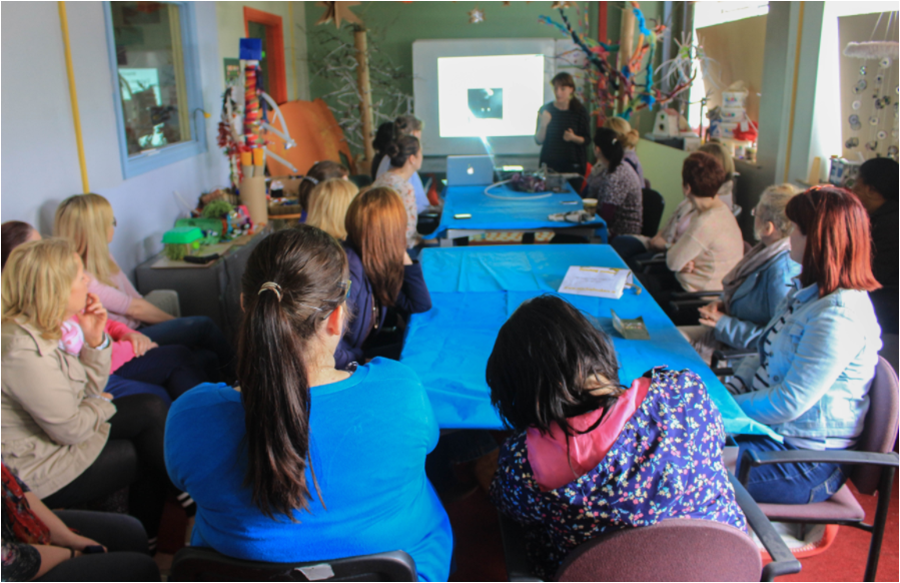
Photo Credit: ReCreate.ie
Tapping into the creative talents of your community can be a very meaningful Climate Action on both the personal and community level. Expression through the medium of art can be a very effective method of communicating climate change. Through art workshops, the community can come together in a fun way to express themselves while developing skills. Such Climate Actions could go a step further by using recycled materials. Perhaps there is a local art group that would be interested in joining in. Having pieces of art that can be displayed publicly would be a great end goal to the project. Perhaps an exhibition could be held, with a collection of pieces produced locally on climate change. There are grants for local community arts projects available too.
Check out these links for more info & ideas;
Organise a Climate Festival
Celebrate positive actions and social benefits of Climate Action
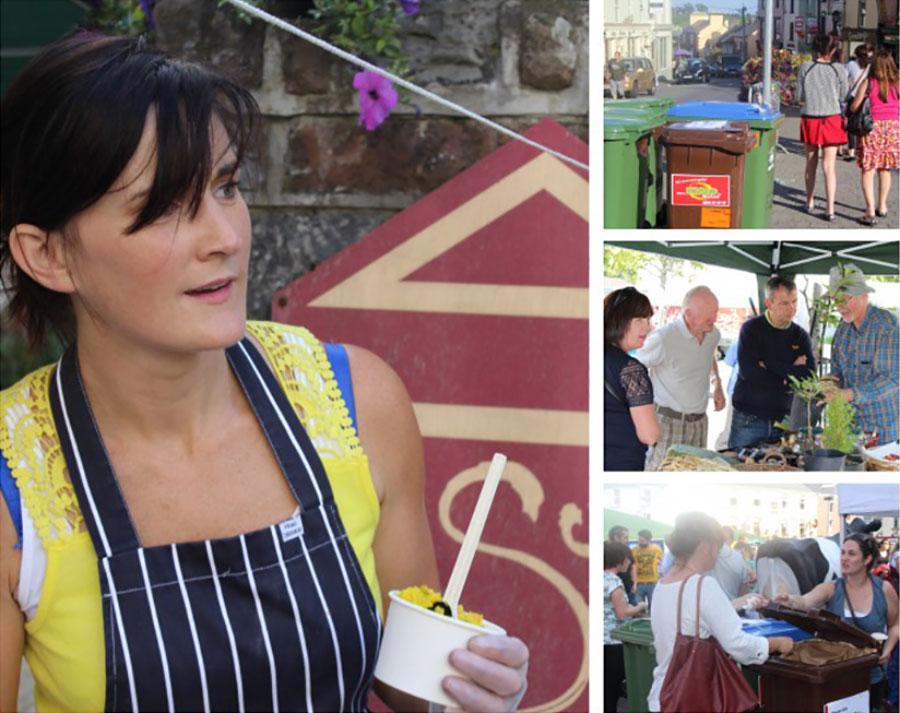
Photo Credit: An Taisce Environmental Education Unit
Hosting your own Climate Festival can be an excellent way to showcase any current Climate Actions that are taking place within your local community, school, college, businesses and local authority as well as being a great forum to involve new people in Climate Actions. Invite people who are already engaged in Climate Action along to have pop up stands, to give talks and demonstrations. Host music and other artistic performances and exhibitions. Have locally sourced vegetarian food, maybe even a farmers market. Provide tea and cake – why not even have a climate cake-off competition? Host a screening, repair café, swap shop or food rescue. Be as diverse and creative as you can and involve the public who will be attending as much as possible. Empower people through knowledge, connection and engagement and have lots of fun!
Green Your Festival
Lots of communities are already greening their festival
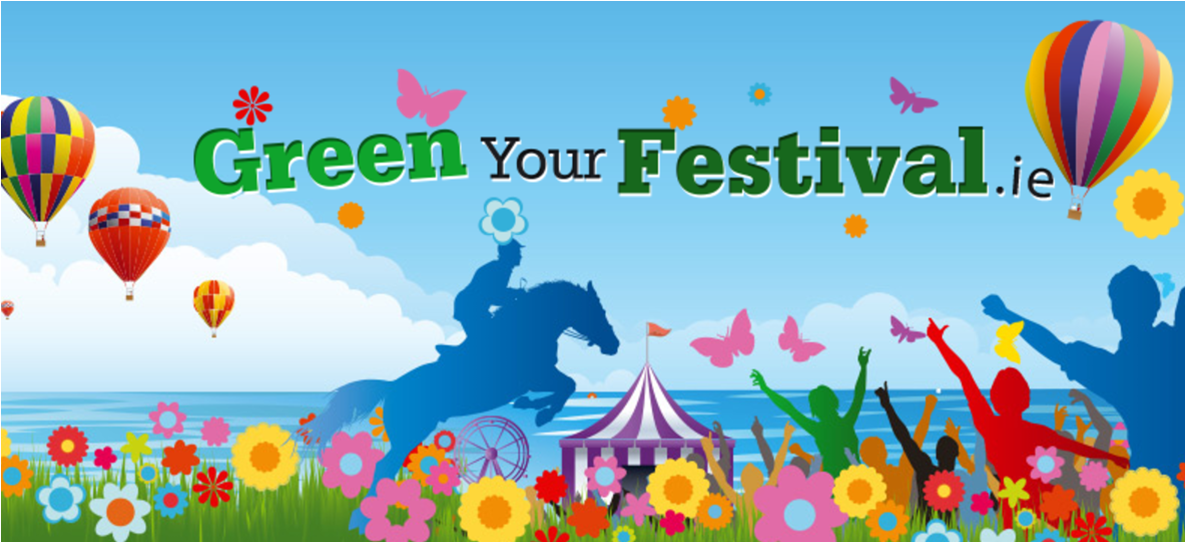
Photo Credit: Green Your Festival
Festivals have always been a sign that Summer has arrived in Ireland and their popularity has increased greatly over the last decade or so. By connecting with the EPA (Environment Protection Agency) and your local authority through greenyourfestival.ie many supports and services are available to make your local community festival a more sustainable event, helping to reduce emissions while also having other benefits such as fostering greater cooperation between local groups and helping to generate more local involvement in such events. You may have a local visitor centre or other group event, such as a fun run that could also benefit from such an approach.
Start a Community Energy Cooperative
Sustainability through energy efficiency & renewable energy
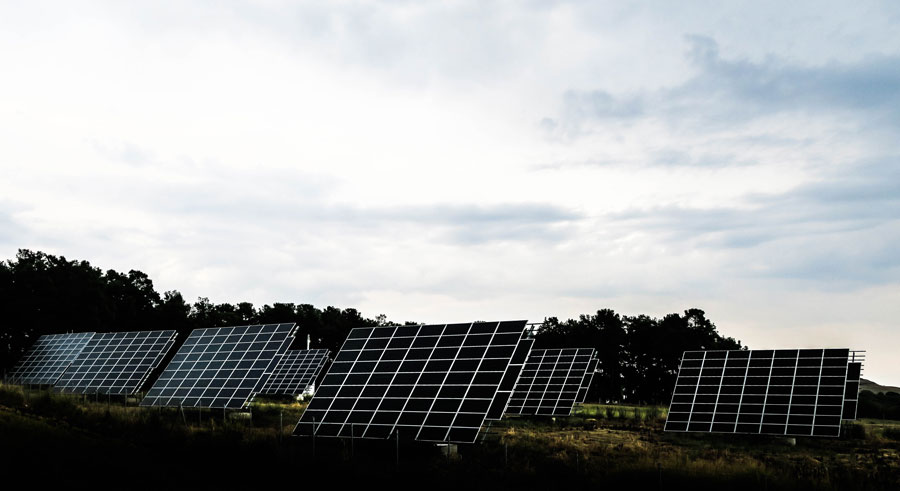
Photo Credit: Jason Blackeye
Renewable energy is one of the most effective tools we have in the fight against climate change. Wind and solar energy have recently experienced large growth, especially with major cost and efficiency improvements in solar over the past decade, with no signs of slowing down. Renewables not only reduce the amount of fossil fuels required for our energy needs, they also provide local jobs, keeping money in the local economy while providing energy independence and a more stable price for energy. Ireland imports 85% of its energy needs, spending €15.6 million per day. A growing number of communities are starting up their own Sustainable Energy Communities with assistance from SEAI, working on projects ranging from large scale insulation of buildings within a community, to setting up renewable energy cooperatives. These ensure that some of the profits of the energy produced are given back to the community and that community members have the option of investing in the scheme, to share in the profits.
Check out these links for more info & ideas;
Source Funding for your Projects
Various schemes are available to source environmental funding
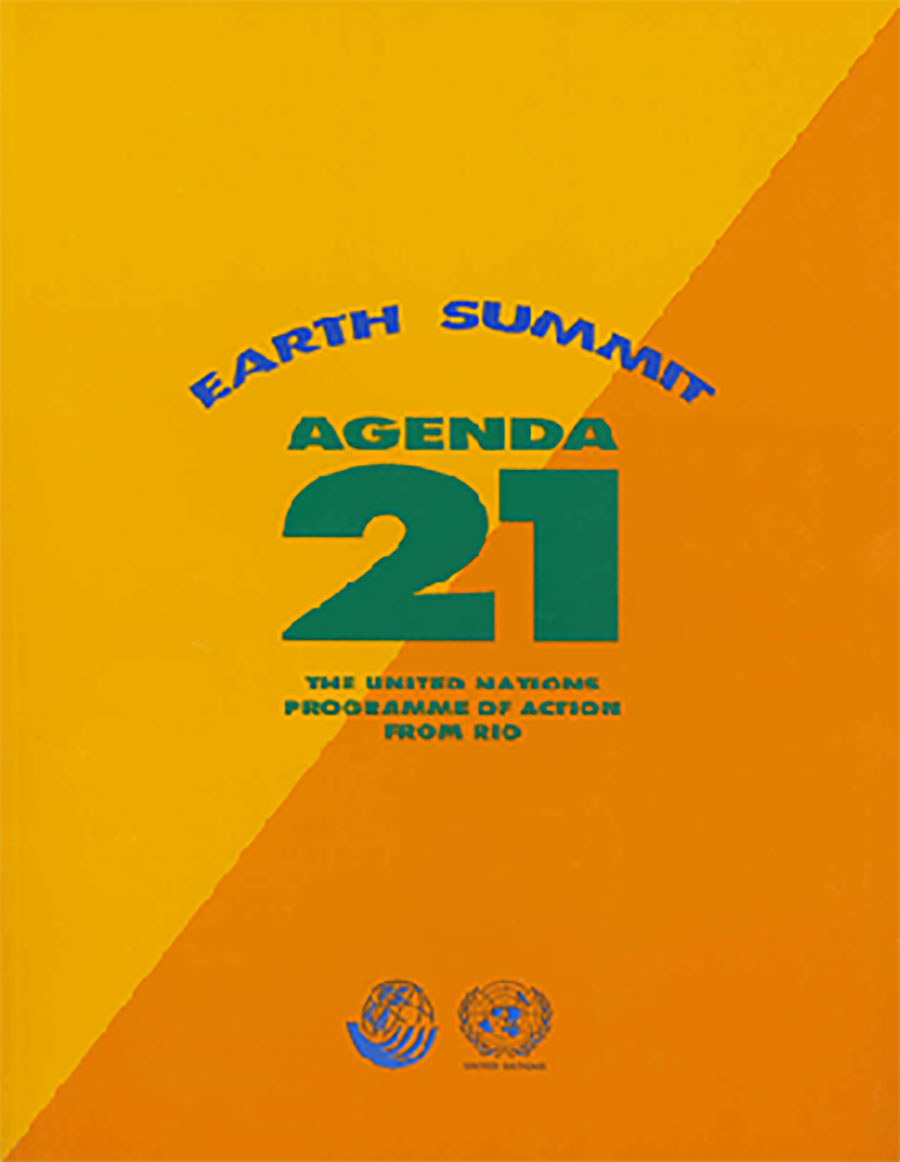
Photo Credit:United Nations
There are grants available to help fund community projects related to Climate Action, for example the “Local Agenda 21 Grant”. Other grants are also available, depending on what type of environmental project your community is interested in pursuing. Local Authorities may also be able to assist with other forms of funding and/or materials and expertise. Carrying out your own fund-raising initiatives within the community is another option, which can be a fun way of getting the community together to work towards improving local climate resilience and also helping to raise awareness. while raising money for local projects.
Check out these links for more info & ideas;
Carry out a local survey
Survey physical area for climate impacts
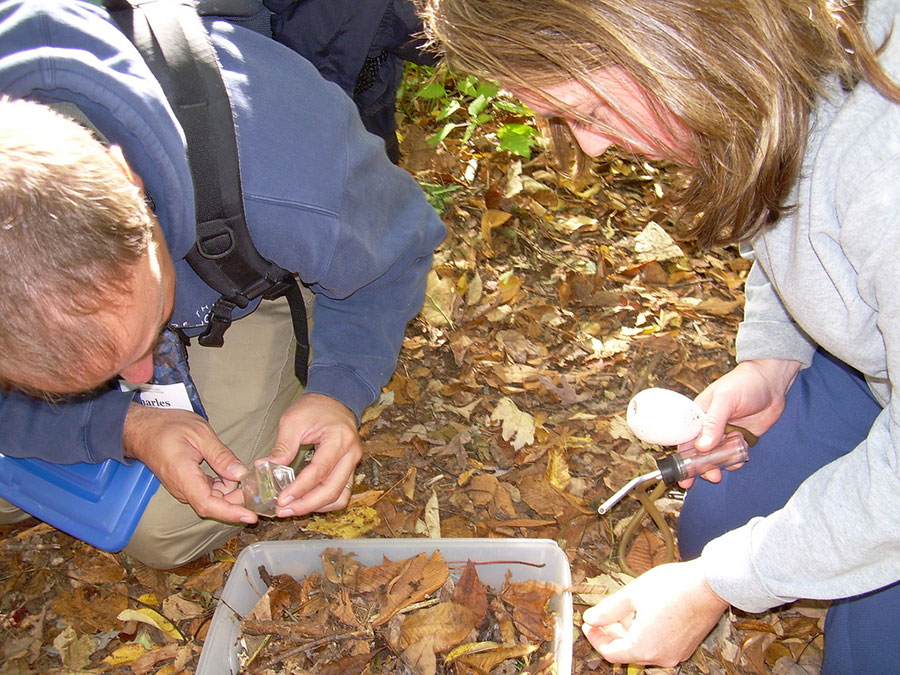
Photo Credit: NCCAT
By surveying your local environment with a group of volunteers, a better understanding can be made of what the impacts of climate change are locally or identifying where actions are needed to adapt to future hazards. The measurements taken be fed in to citizen science surveys and also relayed to your local authority to develop adaptation plans. There are some excellent existing citizen science projects, such as those run by the National Biodiversity Data Centre, that your local community can get involved with. For more detials click here.
Check out these links for more info & ideas;
Reduce Waste in Your Community
Refuse, Reduce, Reuse, Recycle & Rot. Save money & resources!
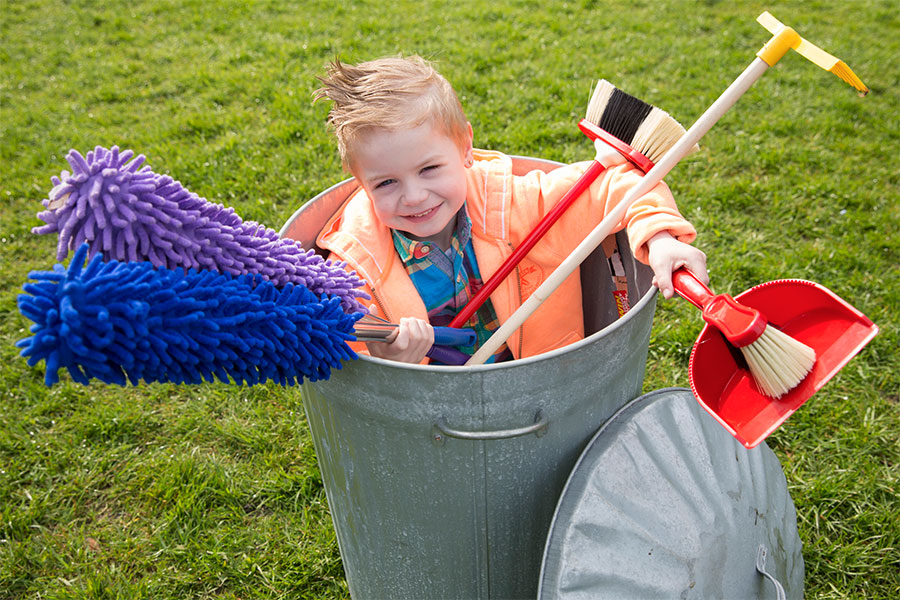
Photo Credit: An Taisce Environmental Education Unit
Waste has become a topical issue with new bin charges being introduced nationwide, so this could be the ideal time for your community to collectively work together to reduce their waste output and save money, while also reducing emissions. Your community could work together to reduce waste, like Cashel, Tipperary, where the community is reducing waste in various ways, for example, by collectively avoiding single use plastics.
Check out these links for more info & ideas;
Upcycle in Your Community
Turn something old into something new!
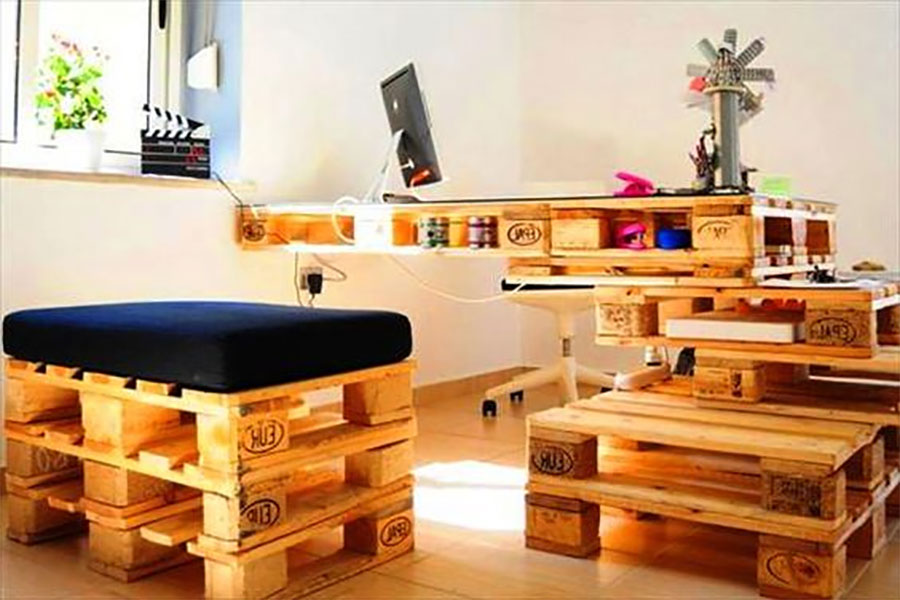
Photo Credit: Pinterest
Upcycling is remodelling old materials no longer in use or destined for disposal into a new use. By giving a new lease of life to these materials, emissions are avoided by not buying new items and also avoiding all the emissions related to disposal, such as transport, decomposition and incineration. Upcycling is a fun and creative way to work collectively with finished works often displaying unique character all of it’s own. Perhaps the completed items could be donated to a local club or charity or sold off to fundraise for other Climate Actions.
Set up a community clean-up group
Carry out a #2minutebeachclean with Clean Coasts or a National Spring Clean!
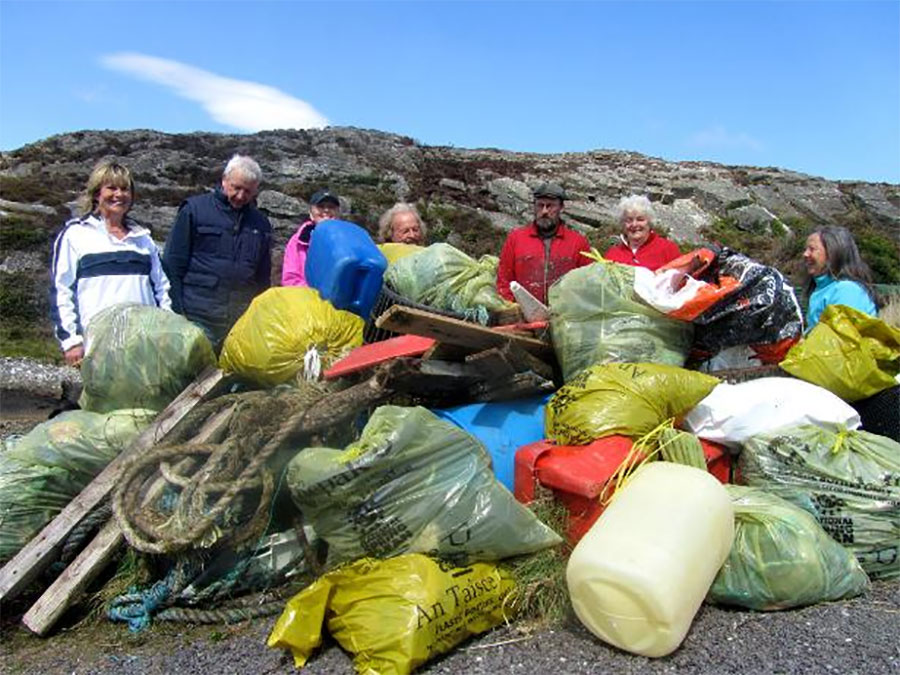
Photo Credit: An Taisce Environmental Education Unit
Litter is an unsightly problem that also has a very negative impact on ecosystems. Considering that over 80% of marine litter comes from land-based activities, it’s another major problem adding to the other climate related issues such as ocean acidification. The majority of marine litter is plastic, which are made from fossil fuels (petroleum). Setting up a community clean-up group can ensure your community is playing its part in reducing this issue. Other possible actions include working with local shops and local authorities to install more public bins in identified litter black-spots or raise awareness with ‘leave no trace’ singage. Getting groups of people out on clean ups is a great way to change behaviours in your locality and leading by example.
Check out these links for more info & ideas;
Reduce the need for plastic drinking bottles
Install a Water Fountain in Your Community

Photo Credit: Indigo Skies Photography
When consumers choose bottled water, they are buying a product that has travelled vast distances using fossil fuels, as well as the plastic bottle itself made from fossil fuels. Encouraging your community to refill their own drinking containers will help reduce plastic water bottle usage. Actions could include bulk buying re-usable drinking bottles to reduce costs, or asking local businesses to sponsor discounted bottles, perhaps including local community branding or selling sponsored branding. Installing a public water fountain, which are popular across continental Europe, would be a great way of demonstrating your communities commitment to reducing plastics. Perhaps local businesses and the local authorities would be willing to help.
Check out these links for more info & ideas;
Rainwater Harvesting
Reduce water usage and water plants chlorine-free
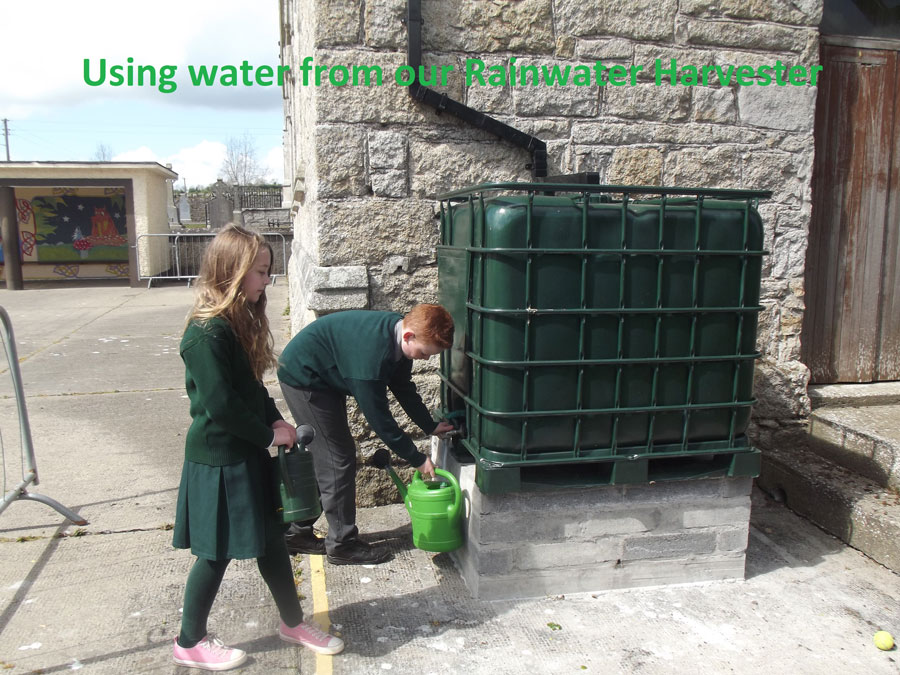
Photo Credit: An Taisce Environmental Education Unit
Rainwater harvesting makes use of a natural resource and reduces flooding and storm water runoff, which are increasing issues in Ireland due to climate change. It also reduces demand on the water supply and is an excellent source for watering plants – helpful with the expected increase in drier summers in Ireland. Home systems such as a water butt can be relatively cheap and simple to install and operate. If you have a metered account you can also reduce your annual water bill and see how much you are saving. By using this system it also helps promote water conservation. For example, rainwater from the roof of Glaslough community centre, Co. Monaghan is harvested in a 1,000 litre water butt to use for watering plants.
